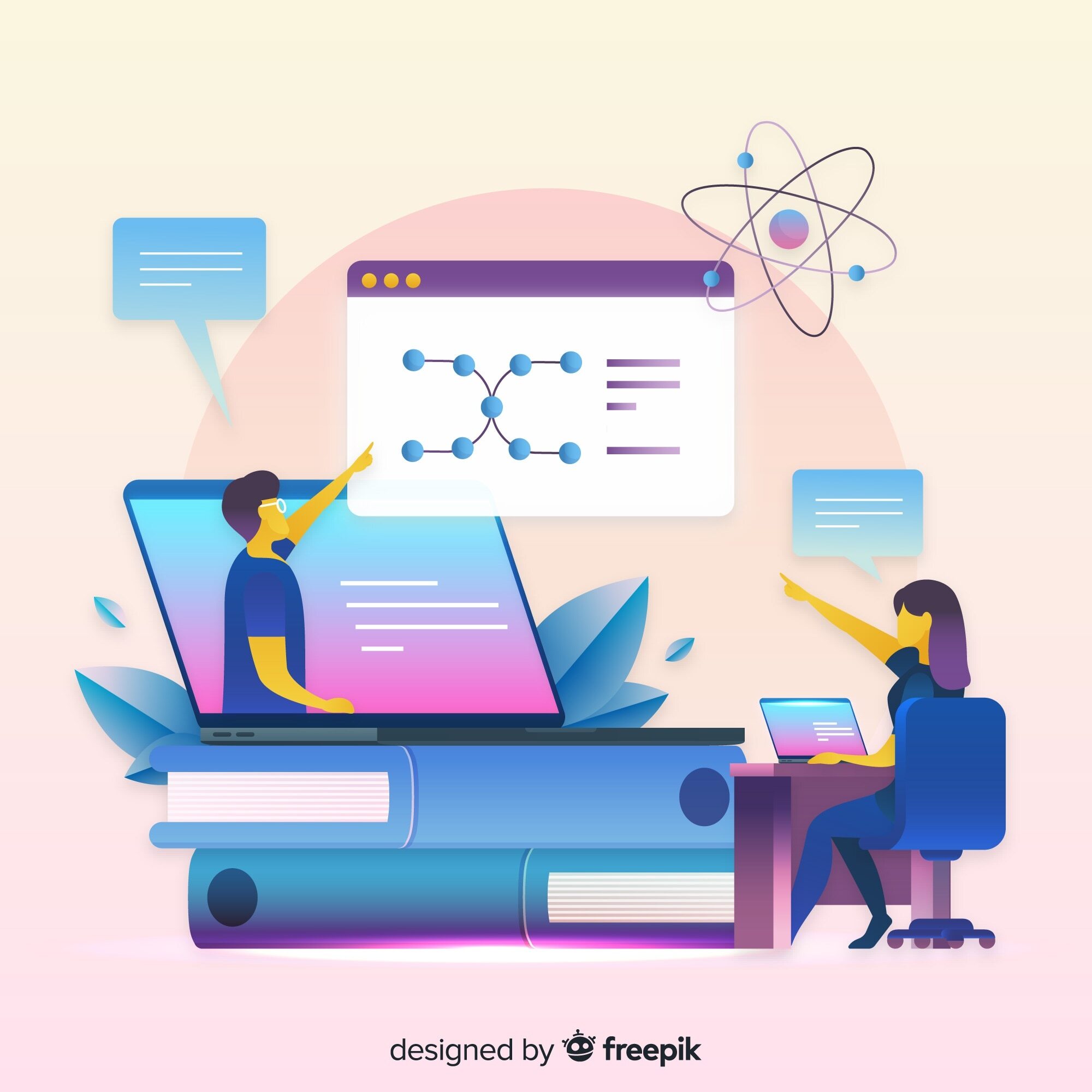Startups face a unique paradox: they need world-class training to compete with established companies, yet lack the resources and infrastructure of their larger competitors. With 55% of startups struggling to find and retain qualified talent, and 74% failing because they can't scale quickly enough, effective employee training has become a make-or-break factor for startup survival. The average startup loses $13,500 per employee due to inadequate onboarding alone, while those with strong training programs see 218% higher income per employee and 24% higher profit margins.
The startup training challenge is compounded by rapid growth, limited budgets, and constantly evolving roles. When your team doubles every six months, traditional training methods simply don't work. You need platforms that can scale from 5 to 500 employees without breaking the bank, deploy training in days not months, and adapt as quickly as your business pivots. Most importantly, you need solutions that new hires can start using immediately without extensive IT support or complex implementations that drain precious time and resources.
Modern training platforms designed for startups are solving these challenges through affordable pricing models, quick deployment, and features that support rapid scaling. The best platforms offer free tiers or low-cost entry points starting at $5 per user, implementation in hours rather than weeks, and automated onboarding that reduces time-to-productivity by 60%. They recognize that in startups, everyone wears multiple hats—your sales rep might also handle customer success, your engineer might lead product demos, and your founder is probably doing everything from recruitment to investor relations.
This comprehensive guide examines the 15 best training platforms specifically suited for startups in 2025, evaluating each based on affordability, ease of implementation, scalability, integration capabilities, and proven results with fast-growing companies. From platforms that transform documentation into interactive training to AI-powered solutions that create courses in minutes, we'll help you find the perfect training solution for your startup's unique needs and growth trajectory.
What is a Startup Training Platform?
A startup training platform is a specialized learning management system (LMS) designed to meet the unique needs of fast-growing, resource-constrained companies. Unlike enterprise LMS solutions that require months of implementation and six-figure budgets, startup training platforms prioritize speed, flexibility, and affordability while still delivering professional-quality training capabilities.These platforms address the specific challenges startups face: rapid team growth requiring constant onboarding, evolving roles demanding continuous upskilling, limited L&D resources with no dedicated training team, remote-first or hybrid work environments, need for documentation as processes are still being created, and budget constraints requiring maximum ROI from every tool. The best startup training platforms offer quick setup (often same-day), intuitive interfaces requiring minimal training, flexible pricing that scales with growth, and integration with startup-friendly tools like Slack, Notion, and Google Workspace.
What distinguishes startup training platforms from traditional corporate LMS is their focus on agility over comprehensiveness. They prioritize getting your first training live in hours rather than perfecting every detail, documentation and knowledge sharing over formal course structures, and practical skills over theoretical knowledge. They recognize that in startups, perfect is the enemy of good, and that some training delivered quickly is infinitely more valuable than comprehensive training delivered too late.
1. 5mins.ai – Revolutionary Microlearning Platform with 95%+ Completion Rates
For startups struggling with employee engagement and knowledge retention, 5mins.ai offers a game-changing approach that achieves 95%+ completion rates through TikTok-style microlearning. This isn't just another LMS—it's a complete reimagination of how fast-growing teams learn, designed specifically for the attention spans and learning habits of modern startup employees.
What makes 5mins.ai particularly powerful for startups is its ability to transform existing content into engaging microlearning instantly. Using AI-powered conversion, startups can upload their existing documentation, presentations, or videos and have them automatically transformed into bite-sized, mobile-optimized lessons in minutes. This solves one of the biggest challenges startups face: creating professional training content without a dedicated L&D team or budget.
The platform's personalized learning feeds adapt automatically based on role, department, and individual progress, ensuring each team member gets exactly the training they need without overwhelming them. For startups where roles evolve rapidly and employees wear multiple hats, this intelligent personalization ensures training stays relevant even as responsibilities shift. Combined with gamification features that drive friendly competition and real-time analytics that prove training ROI, 5mins.ai delivers unmatched engagement for resource-conscious startups.
Key Features:
- 95%+ completion rates through addictive TikTok-style interface
- AI content converter transforms any material into microlearning in minutes
- 20,000+ pre-built lessons covering everything from sales to compliance
- Personalized learning paths that adapt as roles evolve
- Mobile-first design perfect for distributed startup teams
- Gamification with points, badges, and leaderboards
- Offline learning capability for remote workers
- Real-time analytics dashboard proving training ROI
- Seamless integration with Slack and Microsoft Teams
- Multilingual support for global startup teams
Pricing:
5mins.ai offers startup-friendly pricing that scales with growth: Check our Detailed Pricing here.
- Free trial available to test with your team
Why 5mins.ai Excels for Startups:
5mins.ai solves the fundamental challenge of startup training: getting busy, distracted employees to actually complete and retain training. While other platforms focus on features, 5mins.ai focuses on results. The platform's consumer-grade interface means zero training needed to use it, while AI-powered content creation eliminates the need for instructional designers. For startups that need to move fast and see immediate results, 5mins.ai delivers unmatched time-to-value.
2. TalentLMS
TalentLMS has become a go-to choice for budget-conscious startups, offering a robust feature set at an affordable price point. The platform strikes an ideal balance between functionality and simplicity, making it possible for non-technical team members to create and deploy training within hours.
Key Features:
- Intuitive course builder with drag-and-drop functionality
- Built-in video conferencing for live training sessions
- Gamification elements to boost engagement
- Mobile apps for iOS and Android
- SCORM and xAPI compliance
- Custom branding options
- Survey and assessment tools
- Course selling capabilities for customer training
Pricing:
- Free: Up to 5 users and 10 courses
Trainual specializes in documenting processes and turning them into repeatable training, making it perfect for startups building their playbook as they grow. The platform excels at capturing institutional knowledge before it walks out the door.
Key Features:
- Process documentation with templates
- Role-based training paths
- Chrome extension for in-context learning
- AI-powered content generation
- Progress tracking and accountability
- E-signature compliance
- Mobile accessibility
- Organizational chart builder
Pricing:
- Unlimited: Custom pricing for 100+ employees
- free trial available
4. LearnUpon
LearnUpon offers enterprise-grade capabilities at startup-friendly prices, with particular strength in managing multiple audiences—perfect for startups training employees, customers, and partners simultaneously.
Key Features:
- Multi-portal capability for different audiences
- AI-powered content recommendations
- Automated user management
- White-label options
- E-commerce functionality
- Webinar integration
- Course authoring tools
- Automated certification management
- API for custom integrations
Pricing:
- Essential: Custom pricing for up to 50 users
- Premium: Custom pricing for 50-500 users
- Enterprise: Custom pricing for 500+ users
- Free demo available
5. Docebo
Docebo brings AI-powered learning to startups, with features that automate content discovery and personalized learning paths—ideal for startups that need smart automation to compensate for limited L&D resources.
Key Features:
- AI-powered content curation and recommendations
- Social learning capabilities
- Integration with 400+ applications
- Mobile learning app
- Advanced analytics with predictive insights
- Virtual coaching
- Content marketplace
- Observation checklists
- Multi-domain management
- Automated translations
Pricing:
- Growth: Custom pricing for small teams
- Enterprise: Custom pricing for larger organizations
- Contact for startup discounts
- Free trial available
6. 360Learning
360Learning pioneers collaborative learning, enabling subject matter experts within your startup to create and share knowledge quickly—perfect for startups where expertise is distributed across the team.
Key Features:
- Collaborative content creation tools
- Peer learning and feedback systems
- AI-powered content generation
- Mobile-first design
- Integration with Slack and Teams
- Advanced analytics
- Automated upskilling recommendations
- Compliance tracking
- Multi-language support
- Academic-style discussions
Pricing:
- Team: $8 per user/month
- Business: Custom pricing
- Free trial for 30 days
- Discounts for startups under 50 employees
7. WorkRamp
WorkRamp positions itself as the all-in-one learning platform for go-to-market teams, making it ideal for startups focused on sales enablement and customer education.
Key Features:
- Learning path builder
- Content authoring tools
- Virtual instructor-led training
- Advanced analytics and reporting
- In-app learning
- Customer education portals
- Partner training capabilities
- AI-powered coaching
Pricing:
- Employee Learning: Starting at $25/user/month
- Customer Learning: Custom pricing
- Free trial available
8. SC Training (formerly EdApp)
SC Training offers a completely free tier with premium features, making it perfect for bootstrapped startups that need professional training capabilities without the price tag.
Key Features:
- AI course creation
- Microlearning focus
- Gamification and leaderboards
- Push notifications
- Analytics dashboard
- Peer learning
- Virtual classroom
- SCORM support
- Practical simulations
Pricing:
- Free: Up to 10 users
- Growth: $5/user/month (monthly billing)
- Enterprise: Custom pricing
9. Udemy Business
Udemy Business gives startups access to thousands of expert-led courses, eliminating the need to create foundational content from scratch—perfect for technical skills and professional development.
Key Features:
- Fresh content added monthly
- Mobile and offline learning
- Analytics and insights dashboard
- Custom learning paths
- International course collection
- Hands-on practice labs
- Course recommendations
- Team analytics
Pricing:
- Team Plan: $360/user/year (5-20 users)
- Enterprise Plan: Custom pricing (21+ users)
- Free trial available
- Volume discounts for larger teams
10. Intellum
Intellum combines learning with customer education, making it ideal for B2B startups that need to train both employees and clients on complex products.
Key Features:
- Branded learning experiences
- Customer education portals
- Certification programs
- Advanced analytics
- Content authoring tools
- Mobile learning
- Gamification
- Integration capabilities
- Multi-tenant architecture
Pricing:
- Custom pricing based on needs
- Implementation support included
- Free consultation available
11. Apty
Apty specializes in digital adoption, providing in-app guidance that helps startups maximize their software investments—crucial when every tool needs to deliver immediate value.
Key Features:
- In-application guidance
- Process automation
- Analytics and insights
- Multi-language support
- Cross-application workflows
- User behavior tracking
- Task validation
- Integration with platforms
Pricing:
- Growth: Custom pricing
- Enterprise: Custom pricing
- Free trial for 30 days
12. 7taps
7taps focuses on microlearning creation, enabling startups to build mobile-first training in minutes rather than hours—perfect for rapid deployment and iteration.
Key Features:
- Mobile-first microlearning
- AI-powered content creation
- Analytics and tracking
- Multi-language support
- Integration with platforms
- Templates library
- Audio narration
Pricing:
- Free: Limited features for small teams
- Enterprise: Custom pricing
13. Connecteam
Connecteam combines training with operational management, making it ideal for startups that need an all-in-one solution for employee management and development.
Key Features:
- Training and onboarding modules
- Task management
- Employee scheduling
- Communication hub
- Digital forms and checklists
- Recognition and rewards
- Employee directory
- Surveys and feedback
- Compliance tracking
Pricing:
- Contact for Pricing
14. Coursera for Business
Coursera for Business provides access to university-quality content, perfect for startups that need to quickly upskill technical teams or provide professional development opportunities.
Key Features:
- Professional certificates
- Guided projects
- Skills dashboard
- Team progress tracking
- Mobile learning
- Offline access
- API integration
- Custom academies
- Leadership development programs
Pricing:
- Free trial available
- Academic discounts for education startups
15. iSpring Learn
iSpring Learn offers a complete training ecosystem with powerful authoring tools included, making it ideal for startups that want to create professional content without additional software costs.
Key Features:
• Built-in course authoring tool
• Video coaching
• Learning paths
• Detailed reporting
• Mobile apps
• Offline learning
• Gamification
• White-label options
• Content library
• API access
Pricing:
- iSpring Suite : $970 , iSpring Suite AI : $ 1,290 , iSpring Cloud AI : $ 720
How to Choose the Right Training Platform for Your Startup
Selecting the ideal training platform requires balancing immediate needs with future growth plans. The wrong choice can waste precious resources and slow your team's development, while the right platform becomes a competitive advantage that scales with your success.
Start with Your Stage and Size
Early-stage startups (5-25 employees) need platforms that deploy quickly with minimal setup. Growth-stage startups (25-100 employees) require more structure and analytics to ensure consistent training across expanding teams. Scaling startups (100+ employees) need enterprise features at startup prices, making platforms like 5mins.ai , LearnUpon or Docebo ideal with their multi-portal capabilities and advanced automation.
Evaluate Total Cost of Ownership
Look beyond monthly subscription fees to understand true costs. Consider content creation time—platforms like 5mins.ai that auto-generate content from existing materials save thousands in development costs. Implementation and setup fees can add significant upfront costs. Administrative overhead varies dramatically; some platforms require dedicated admins while others run themselves. Integration costs matter when connecting to your existing tech stack. Hidden fees for additional users, storage, or features can blow budgets. Calculate the full cost over 12-24 months including all these factors.
Prioritize Speed to Value
Startups can't afford lengthy implementations. Evaluate how quickly you can launch your first training: same-day deployment beats six-week implementations every time. Consider how fast employees can start learning without extensive orientation. Look for platforms where creating content takes minutes, not days. Ensure the platform provides immediate insights rather than requiring months of data collection. The best platforms deliver measurable impact within 30 days.
Assess Integration Requirements
Your training platform must fit seamlessly into your existing workflow. Essential integrations include communication tools (Slack, Teams), HRIS systems for automated user management, CRM platforms for sales training, productivity tools (Google Workspace, Notion), and analytics platforms for comprehensive reporting. Platforms that don't integrate become islands of information that employees avoid.
Plan for Scale
Choose platforms that grow with you without painful migrations. Look for flexible pricing that doesn't penalize growth, features that unlock as you need them rather than requiring platform changes, and strong API capabilities for custom integrations as you mature. Multi-language support becomes critical as you expand globally. The ability to manage multiple audiences (employees, customers, partners) from one platform prevents tool proliferation.
Measure What Matters
Startup training metrics differ from enterprise KPIs. Focus on time-to-productivity for new hires (can you reduce onboarding from weeks to days?), completion rates that indicate actual engagement, knowledge retention that translates to performance, and cost per trained employee that proves ROI. The best platforms provide these insights without complex configuration.
Don't Overlook Support
When you're moving fast, good support becomes critical. Evaluate response times, availability of implementation assistance, quality of documentation and self-service resources, and community forums where you can learn from other startups. Platforms that offer dedicated customer success for startups often provide invaluable strategic guidance beyond technical support.
Test Before You Commit
Take advantage of free trials and pilot programs. Run a real training initiative during the trial, not just a demo. Involve actual end users, not just administrators. Test mobile experience and offline capabilities. Verify integration functionality with your actual tools. Measure genuine engagement, not just feature checkboxes. The best platform for your startup is the one your team will actually use.
Conclusion
The training platform landscape for startups has evolved dramatically, moving beyond expensive enterprise solutions to embrace the unique needs of fast-growing, resource-constrained companies. The platforms reviewed here prove that world-class training is no longer the exclusive domain of large corporations with dedicated L&D departments and six-figure budgets.
The transformation is remarkable: where startups once struggled with 20% training completion rates, platforms like 5mins.ai achieve 95%+ engagement. Where content creation once took weeks and thousands of dollars, AI-powered tools now generate professional training in minutes. Where implementation once required IT teams and months of setup, modern platforms launch in hours with intuitive interfaces anyone can manage.
Success in startup training isn't about finding the platform with the most features—it's about finding the one that delivers immediate value while scaling with your growth. The best platforms recognize that in startups, done beats perfect, adoption beats sophistication, and results beat process. They understand that your training needs will evolve as rapidly as your business, and they provide the flexibility to adapt without starting over.
For early-stage startups, the priority is speed and simplicity. Platforms offering free tiers or low-cost entry points let you start training immediately while you validate your business model. For growth-stage startups, the focus shifts to consistency and scalability—ensuring every new hire receives the same quality onboarding whether they're employee number 20 or 200. For scaling startups, advanced features like multi-portal management, detailed analytics, and enterprise integrations become essential for maintaining culture and quality across distributed teams.
The financial impact of choosing the right platform is substantial. Effective training can reduce your time-to-productivity by 60%, cut turnover costs by 50%, and improve employee performance by 20% or more. For a 50-person startup, this translates to hundreds of thousands in saved recruiting costs, millions in improved productivity, and immeasurable gains in team morale and culture preservation.
Looking beyond, the convergence of AI, mobile technology, and collaborative learning will continue to democratize professional development. Startups that embrace these platforms gain competitive advantages that were previously impossible: the ability to onboard remote employees as effectively as in-office teams, maintain consistent training across hypergrowth, and build learning cultures that attract and retain top talent.
The platform you choose today will shape how your team learns and grows tomorrow. Whether you prioritize engagement through platforms like 5mins.ai, documentation through Trainual, or comprehensive content through Udemy Business, the key is starting now. Every day without proper training is a day of missed opportunities, inconsistent execution, and preventable mistakes. In the race to scale, the startups that learn fastest win.
Frequently Asked Questions
Q: What's the minimum budget needed for a quality startup training platform?
A: You can start with quality training for free at $100/month. Entry-level paid plans typically range from $89-299/month, offering significantly more capacity. For comprehensive solutions with advanced features, budget $5-25 per user monthly. The key is starting with basic functionality and upgrading as you grow rather than over investing early.
Q: How quickly can we realistically deploy a training platform and see results?
A: Modern startup training platforms can be operational within hours, not weeks. Initial setup typically takes 2-4 hours for basic configuration. Your first training can go live the same day using templates or AI-generated content. Most startups see initial results within 7-14 days, including improved onboarding efficiency and employee feedback. Measurable ROI typically appears within 30-60 days through reduced time-to-productivity and improved performance metrics. The key is starting with critical training needs rather than trying to build comprehensive programs immediately.
Q: Should we build our own training content or use pre-built courses?
A: The most effective approach combines both. Start with pre-built content for common skills (technical training, compliance basics, soft skills) available through platforms like Udemy Business or SC Training's free library. Simultaneously, document your unique processes, culture, and product knowledge using platforms like 5mins.ai. This hybrid approach provides immediate value while building proprietary training assets. Most successful startups follow an 80/20 rule: 80% leveraging existing content, 20% creating company-specific materials.
Q: How do we ensure employees actually complete training in our fast-paced environment?
A: Engagement requires both the right platform and implementation strategy. Choose platforms with mobile access and microlearning (3-5 minute modules) that fit into natural work breaks. Platforms like 5mins.ai achieving 95%+ completion rates prove this is possible. Integrate training into existing workflows through Slack or Teams. Make training immediately applicable to current projects. Use gamification and social features to create friendly competition. Most importantly, demonstrate value quickly—employees engage when training clearly improves their performance.
Q: What features are absolutely essential vs. nice-to-have for startups?
A: Essential features include mobile access (since learning happens anywhere), quick content creation or quality pre-built libraries, basic progress tracking and completion certificates, integration with at least your communication tools, and simple user management that scales. Nice-to-have features that become important as you grow include advanced analytics and reporting, AI-powered personalization, multi-language support, customer training portals, and API access for custom integrations. Start with essentials and add advanced features as needs emerge.
Q: How do we handle training during rapid scaling when roles constantly change?
A: Choose platforms built for flexibility rather than rigid course structures. Platforms with role-based learning paths that can be quickly modified are essential. Use collaborative platforms like 5mins ai, where team members can contribute expertise as roles evolve. Implement continuous learning approaches rather than one-time training events. Most importantly, choose platforms where content can be updated in minutes, not through complex revision processes.
Q: What metrics should we track to prove training ROI to investors?
A: Focus on metrics that directly impact business performance. Track time-to-productivity for new hires (industry average is 8-12 weeks; good training can reduce this to 2-4 weeks). Measure employee retention rates (trained employees stay 50% longer on average). Document performance improvements through sales metrics, customer satisfaction scores, or productivity measures. Calculate cost savings from reduced errors, compliance issues, or support tickets. Most platforms provide dashboards that visualize these metrics, making investor conversations data-driven.
Q: How do we manage training across different departments with varying needs?
A: Multi-portal or role-based platforms work best for diverse training needs. Use learning paths to customize journeys for engineering, sales, customer success, and operations teams. Implement core company-wide training (culture, compliance, tools) that everyone completes, then layer department-specific training on top. The key is finding platforms that balance customization with administrative simplicity.
Q: Should we prioritize employee training or customer education platforms?
A: Start with employee training unless customer education directly drives revenue. Well-trained employees deliver better customer experiences, reducing the need for extensive customer education. This approach prevents platform proliferation and provides consistent learning experiences. For B2B startups, customer education often becomes a competitive advantage worth investing in early.
Q: What's the biggest mistake startups make when choosing training platforms?
A: The biggest mistake is choosing platforms based on features rather than adoption likelihood. The most sophisticated platform is worthless if employees don't use it. Startups often overestimate their team's appetite for formal learning and underestimate the importance of user experience. Other common mistakes include waiting too long to implement training, thinking it's only needed at scale; choosing platforms that require dedicated administrators; building elaborate content before validating what training is actually needed; and selecting platforms that don't integrate with existing tools, creating silos. Focus on platforms your team will actually use, then expand functionality as engagement proves the value.
Download our library of 20K+ bite-sized lessons
.png)



